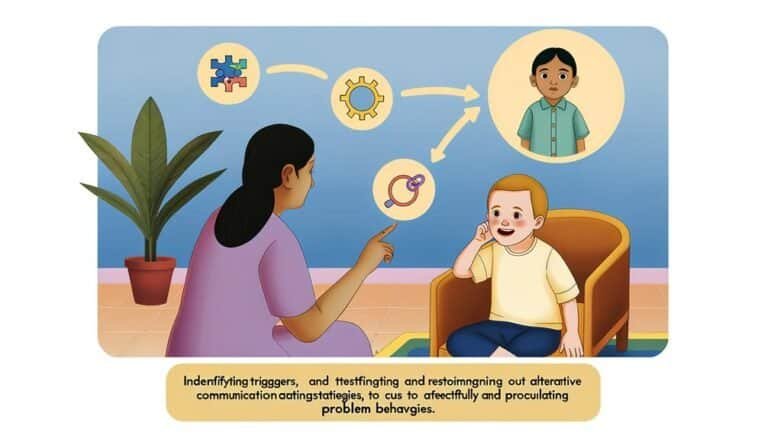Field Training: Enhancing Real-World Skills
Field training serves as an important component in bridging the gap between theoretical knowledge and practical application. By immersing oneself in real-world scenarios, individuals can cultivate a unique skill set that goes beyond traditional classroom learning.
The hands-on experience gained through field training not only enhances technical abilities but also fosters adaptability and problem-solving skills.
But how does this experiential learning translate into tangible career benefits and advancement opportunities? Let's explore how field training equips individuals with the tools necessary to thrive in today's dynamic work environment.
Key Takeaways
- Integrates theoretical knowledge with practical skills for real-world application
- Develops critical thinking and problem-solving abilities through hands-on experience
- Enhances industry-specific knowledge and skills for professional success
- Fosters innovative problem-solving approaches and creative thinking techniques
Importance of Field Training
Field training plays an important role in bridging the gap between theoretical knowledge and practical skills, equipping individuals with the hands-on experience necessary to excel in their chosen field. Through field observation, individuals can witness real-world applications of concepts learned in the classroom, gaining insights that go beyond textbooks. This firsthand experience is invaluable for skill development, allowing individuals to understand how to navigate challenges and solve problems in a real-world setting.
Hands-on training during field experiences provides practical experience that cannot be replicated in a traditional classroom setting. It allows individuals to put theory into practice, honing their abilities and building confidence in their skills. By actively engaging in tasks related to their field of study, individuals can test their knowledge, receive immediate feedback, and refine their techniques. This practical experience not only enhances their understanding but also prepares them for the demands of their future careers.
Hands-On Learning Experience
Incorporating hands-on learning experiences into educational programs enriches students' practical skills and deepens their understanding of theoretical concepts. Through field exercises and hands-on practice, students can bridge the gap between theory and real-world application.
Here are five key benefits of hands-on learning experiences:
- Outdoor Simulations: Engaging in outdoor simulations allows students to apply their knowledge in realistic scenarios, preparing them for challenges they may face in their future careers.
- Team Collaboration: Hands-on activities often require collaboration with peers, promoting teamwork and communication skills essential for professional success.
- Enhanced Retention: Actively participating in hands-on learning helps students retain information better than passive forms of learning, leading to a deeper understanding of the subject matter.
- Problem-Solving Skills: By facing challenges in a hands-on setting, students develop critical thinking and problem-solving abilities that are invaluable in a practical work environment.
- Skill Application: Hands-on learning enables students to directly apply concepts learned in the classroom, reinforcing their understanding and mastery of essential skills.
Practical Skill Development
Engaging in hands-on learning experiences not only enhances theoretical knowledge but also cultivates practical skill development essential for real-world success. Skill acquisition is greatly facilitated through hands-on practice, allowing individuals to apply what they have learned in a tangible way. By actively engaging in tasks that require practical skills, individuals can refine their abilities, troubleshoot challenges, and gain confidence in their capabilities.
Hands-on practice plays a critical role in honing practical skills across various disciplines. Whether it's mastering a surgical technique, perfecting a culinary dish, or fine-tuning mechanical repairs, the act of physically doing tasks is instrumental in skill development. This direct involvement fosters muscle memory, improves dexterity, and enhances problem-solving abilities in real-time situations.
Moreover, practical skill development through hands-on practice enables individuals to bridge the gap between theory and application. It allows for a deeper understanding of concepts by experiencing how they work in practice. This experiential learning not only solidifies knowledge but also equips individuals with the competencies needed to excel in their respective fields.
Critical Thinking Enhancement
Enhancing critical thinking skills is paramount for maneuvering complex challenges and making informed decisions across various professional domains. Critical thinking enhancement involves honing problem-solving strategies and decision-making techniques to navigate uncertainties effectively. It also focuses on analytical reasoning and logical deduction to arrive at well-thought-out conclusions.
Here are key aspects to contemplate when enhancing critical thinking skills:
- Developing Problem-Solving Strategies: Encouraging individuals to think creatively and approach problems from different angles.
- Utilizing Decision-Making Techniques: Teaching methodologies to evaluate options, anticipate consequences, and make sound decisions.
- Enhancing Analytical Reasoning: Practicing the ability to analyze information, identify patterns, and draw meaningful insights.
- Fostering Logical Deduction: Strengthening the capacity to draw logical conclusions based on available evidence.
- Promoting Continuous Learning: Emphasizing the importance of seeking new information, perspectives, and staying adaptable in dynamic environments.
Industry-Relevant Knowledge
Acquiring industry-relevant knowledge is essential for professionals to excel in their field.
Practical application techniques provide a hands-on approach that allows individuals to grasp the intricacies of their industry.
This firsthand experience is invaluable in preparing workers to navigate real-world challenges effectively.
Practical Application Techniques
Developing a thorough understanding of industry-specific skills and knowledge is essential for mastering practical application techniques in the field. To enhance practical application and skill mastery, professionals should engage in various strategies:
- Simulation Exercises: Simulating real-world field scenarios for hands-on practice.
- Role-Playing Activities: Acting out different roles to understand diverse perspectives.
- Case Studies: Analyzing real cases to apply theoretical knowledge practically.
- Peer Feedback Sessions: Receiving constructive feedback from colleagues to improve skills.
- Continuous Learning: Staying updated with industry trends and innovations for better practical application.
These techniques not only facilitate hands-on experience but also foster continuous improvement in applying theoretical knowledge to real-world situations.
Relevant Hands-On Experience
To successfully apply industry-specific skills in practical scenarios, professionals must prioritize obtaining relevant hands-on experience that directly aligns with current industry knowledge and trends. Outdoor simulations and interactive workshops provide valuable opportunities for individuals to immerse themselves in realistic situations, enabling them to develop critical thinking and problem-solving skills. Field exercises and hands-on workshops offer a practical way to reinforce theoretical knowledge and enhance technical competencies. By actively participating in these hands-on experiences, professionals can bridge the gap between theory and practice, gaining a deeper understanding of their field and preparing themselves for the challenges they may face in real-world settings.
| Hands-On Experience Benefits | Description | Importance |
|---|---|---|
| Practical Application | Apply theory to reality | Reinforces learning |
| Skill Development | Enhance technical skills | Improves proficiency |
| Problem-Solving Skills | Develop critical thinking | Enhances decision-making |
| Industry Alignment | Aligns with current trends | Assures relevance |
Professional Competence Building
Building a strong foundation of professional competence is essential for success in any field. Professional competence encompasses skill refinement and continuous professional growth through practical application and hands-on training.
Here are five key aspects to contemplate when aiming to build professional competence:
- Continuous Learning: Engage in ongoing education and training to stay updated with the latest industry trends and best practices.
- Networking: Build a strong professional network to exchange knowledge, gain insights, and stay connected with industry peers.
- Mentorship: Seek guidance from experienced professionals to learn from their expertise and gain valuable career advice.
- Feedback Mechanisms: Embrace feedback from supervisors, colleagues, and clients to identify areas for improvement and enhance your skills.
- Professional Certifications: Pursue relevant certifications to demonstrate your expertise and commitment to professional development.
Problem-Solving Abilities
Developing problem-solving abilities is essential in traversing the complexities of the professional world.
By honing critical thinking techniques, individuals can effectively analyze complex issues and devise innovative approaches to problem-solving.
Strengthening these skills through field training can better equip individuals to tackle real-world challenges with confidence and competence.
Critical Thinking Techniques
Enhancing critical thinking techniques in field training programs is essential for cultivating effective problem-solving abilities in real-world scenarios. By honing analytical reasoning and problem-solving strategies, individuals can navigate complex situations with confidence and precision.
To enhance critical thinking skills, consider the following techniques:
- Mind Mapping: Visual representation aids in organizing thoughts and identifying connections.
- SWOT Analysis: Evaluating strengths, weaknesses, opportunities, and threats provides a structured approach to problem-solving.
- Critical Questioning: Challenging assumptions and seeking alternative perspectives fosters deeper analysis.
- Decision Trees: Mapping out possible outcomes helps in making informed decisions.
- Scenario Planning: Anticipating different scenarios prepares individuals to adapt quickly to changing circumstances.
Analyzing Complex Issues
To navigate the intricacies of real-world challenges effectively, individuals must adeptly analyze complex issues, showcasing their problem-solving abilities with strategic acumen and adaptability. Complex problem solving demands a deep understanding of multifaceted issues, requiring individuals to break down intricate problems into manageable parts.
Critical analysis plays a pivotal role in this process, enabling professionals to evaluate information objectively, identify underlying issues, and generate effective solutions. By honing their analytical skills, individuals can approach challenges with clarity and precision, making informed decisions to address complex issues efficiently.
Emphasizing the importance of critical thinking and problem-solving acumen in field training can empower individuals to navigate diverse scenarios confidently and contribute meaningfully to achieving organizational goals.
Innovative Problem-Solving Approaches
Professionals with a keen focus on refining their problem-solving abilities often seek innovative approaches to tackle complex challenges effectively. Creative problem solving and unconventional approaches are essential in today's dynamic work environment.
Out of the box thinking leads to innovative solutions that can revolutionize traditional problem-solving methods. Embracing experimentation and encouraging a culture of curiosity can spark new ideas and solutions. Leveraging technology to automate repetitive tasks frees up time for strategic thinking and creative problem-solving.
Real-World Application
Applying theoretical knowledge in practical settings is a pivotal aspect of field training, allowing individuals to develop essential real-world skills. By facing real-world challenges through hands-on practice, trainees can bridge the gap between theory and application. This direct engagement with practical scenarios enables individuals to refine their problem-solving abilities, adapt to dynamic situations, and enhance their decision-making skills.
Real-world challenges encountered during field training present opportunities for individuals to apply their knowledge in authentic environments, where outcomes have tangible consequences. Through hands-on practice, trainees learn to navigate complexities, collaborate effectively with team members, and innovate solutions to real-time problems. This experiential learning approach not only reinforces theoretical concepts but also equips individuals with the confidence and competence needed to excel in their respective fields.
Career Advancement Benefits
Enhancing real-world skills through field training offers professionals significant career advancement benefits. Field training plays a crucial role in career growth and skill development, providing individuals with practical experiences that can set them apart in the workplace.
Here are some key benefits professionals can expect:
- Enhanced Skill Development: Field training allows individuals to apply theoretical knowledge in real-world scenarios, honing their practical skills effectively.
- Increased Job Opportunities: Acquiring new skills through field training can make professionals more marketable to potential employers, opening up a wider range of job opportunities.
- Career Advancement: The hands-on experience gained during field training can accelerate career growth by demonstrating competence and readiness for higher-level roles.
- Professional Networking: Field training often involves collaboration with industry professionals, creating valuable networking opportunities that can lead to career advancement.
- Improved Problem-Solving Abilities: Dealing with challenges in real-world settings during field training enhances problem-solving skills, a vital asset for career development.
Effective Skill Transfer
Field training not only enhances practical skills but also plays a pivotal role in facilitating the effective transfer of these skills into real-world professional settings. The process of skill transfer involves not just acquiring new knowledge but also ensuring that it is retained and can be applied effectively in different situations. Skill retention is important for individuals undergoing field training as it directly impacts their ability to perform tasks competently once they enter the workforce.
One of the key benefits of effective skill transfer is the transferability of skills across various scenarios. When individuals can successfully transfer the skills they have learned during field training to their professional roles, they become more versatile and adaptable employees. This adaptability is highly valued in today's dynamic work environment, where employees are often required to navigate complex challenges and rapidly changing situations.
Conclusion
To wrap up, field training provides invaluable hands-on experience, practical skill development, and critical thinking enhancement for individuals seeking to advance their careers. It offers industry-relevant knowledge, problem-solving abilities, and real-world application that can lead to career advancement.
Like a well-oiled machine, field training effectively transfers skills and knowledge to individuals, equipping them with the tools needed to succeed in their respective industries.







